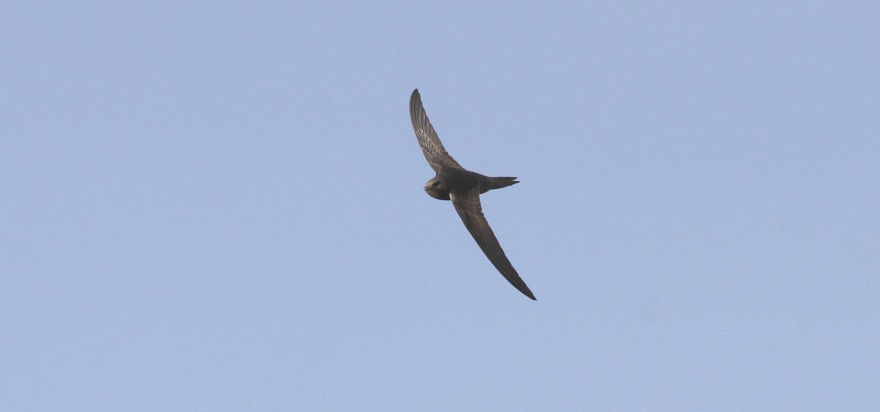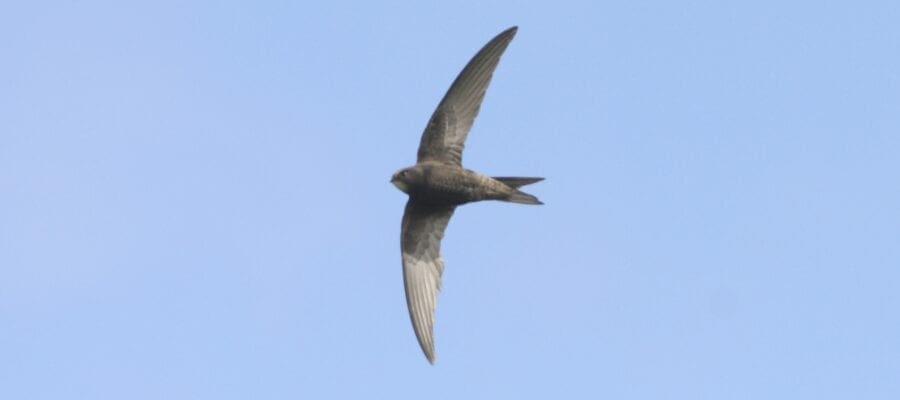But despite being low maintenance guests, their summer accommodation is under threat.
If you are going to have company for the whole of the summer, you couldn’t get better house guests than swifts, who will be arriving soon for their annual trip.
If they were to answer a ‘housemates wanted’ ad they would be very clean, stay only 12 weeks per year and be very helpful in getting rid of mosquitoes and other flying insects.
Rebecca Pitman, RSPB Swift Cities Project Officer, says: “Swifts are the best tenants you could hope for and if you are lucky enough to have them nesting near you, you should feel privileged to share your house with these amazing birds
“Swifts are a quintessential sign of summer. There’s nothing like seeing and hearing them soar over rooftops on a summer’s evening. They are charismatic, enigmatic and one of the fastest flying birds in the world. Swifts are only in the UK for three months of the year, from April to August, and make practically no mess where they nest, so they are the ideal tenants to have nesting in your roof. In fact, most people don’t even realise the swifts are there – the perfect kind of houseguest!”
But despite being low maintenance, swifts are facing an accommodation crisis, and the RSPB is appealing for help for these intriguing birds over the summer.
When they arrive back in the UK they return to the exact same location year after year. Swifts like to nest in the rooftops of old buildings but renovation and development often destroys suitable sites.
Rebecca Pitman says: “Swifts have declined by an alarming 38% since 1995 and are now an amber-listed species on the list of Birds of Conservation Concern. We don’t know the exact cause of their decline – it could be a variety of issues along their flyway, including loss of insect food availability or climate change – but the RSPB believes loss of nest sites in the UK is at least partly responsible.”
“Swifts could become extinct as a breeding species in the UK if we don’t all do something about their plight.”

Swift Fact File:
Swifts are some of the last spring migrants to arrive in the UK, but will be among the first to leave. They only remain in Britain from April to August. At the beginning of the summer they fly from Africa to the UK to nest and raise their chicks. Over the course of their 6,000 mile journey they never touch the ground; eating and sleeping whilst in flight.
Their diet consists of insects like flies, mosquitoes and midges. Swifts collect insects by making a ball of food (or “bolus”) in their throat, which can contain up to 1,000 insects. They feed the chicks many times a day and the parents can gather as many as 100,000 insects a day.
Swifts provide a fantastic display during the summer months and their screaming calls, usually in late April or early May, are an indication that summer is just around the corner. They are some of the last spring migrants to arrive, but will be among the first to leave. Each summer swifts fly from Africa to the UK to nest and raise their chicks, and over the course of their 6,000 mile journey they never touch the ground; eating and sleeping whilst in flight!
Swifts fly on average 800 km every day (nearly 500 miles), and about 2 million km (more than 1.2 million miles) in a lifetime, which is more than four trips to the Moon and back.
Their nests are minimal, made from stuff they collect in the air, such as feathers, paper, straw, hay and seeds. These materials are cemented with saliva and used to build a nest in open eaves, under loose roof tiles and in holes in walls. After the chicks have fledged most of the nest is disposed of by invertebrates and the remaining is often reused year after year.
The RSPB is launching the new national ‘Swift Cities Project’ to stop and reverse the decline of swifts. “Following the success of the founding Swift Cities set up in Belfast and Exeter, we aim to launch more swift cities in regions all around the UK“, said Rebecca Pitman who is RSPB Project Officer for Swift Cities.
One of the first objectives of the project is to raise public awareness of the dramatic decline of swifts. The RSPB is working in partnership with planners, developers, local authorities and businesses to protect and provide nest sites for swifts in house developments and renovations; monitoring local swift populations and nest sites through ‘citizen science’.
What can people do to help swifts?
- We need people to send their swift sightings to the RSPB Swift Survey at rspb.org.uk/swiftsurvey. This will provide essential data on swift nest site locations to assist planners and developers to protect and enhance swift colonies through mitigation during development, acting as a vital conservation planning tool.
- Leave existing nest sites undisturbed and avoid working on walls or roofs with swifts nesting in them during the breeding season, May to August inclusive.
- When repairing or restoring a roof keep swifts in mind: make sure new access holes match the location of the old ones.
- Never disturb swifts at the nest.
- Put up swift nest boxes at home and play swift calls to attract them.
- Comment on local planning applications, asking your local authority to protect and provide swift nest places.











